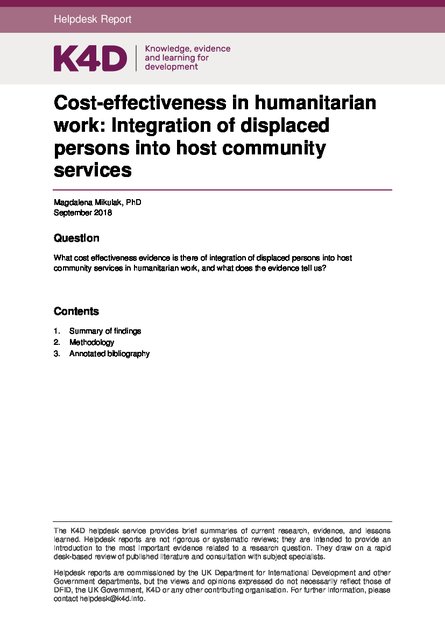
With unprecedented numbers of displaced persons around the world, the humanitarian system is facing huge financial pressures. The existing literature makes a strong case for the integration of displaced persons into host community services and labour markets, making displacement a development issue as well as a humanitarian issue (WBG, 2017; UNCHR, 2018). There is evidence that joint humanitarian and development programmes can improve displaced persons and host communities’ access to services and livelihoods (Centre on International Cooperation, 2015). The reviewed literature acknowledges that integration puts strain on local communities, as many encounter problems meeting the demand for services that comes with the increase in population. Affordable housing, education, and availability of income-generating opportunities can be considered the primary drivers of tension (ORSAM, 2015; REACH, 2014). Consequently, it is agreed that for integration programmes to be effective and foster social cohesion, they must also benefit host communities.